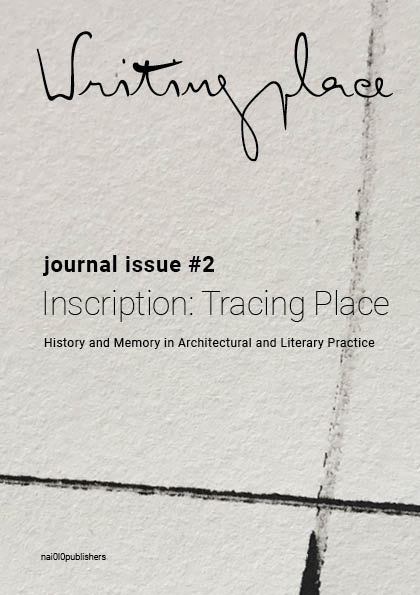Wherever You Go, You Will Be a City
Minor Memories and Tactics of Empathy in the Work of Lisa Robertson
DOI:
https://doi.org/10.7480/writingplace.2.2640Keywords:
Certeau, Robertson, memory, embodiment, resistance, othernessAbstract
Poet Lisa Robertson’s spatial wanderings offer an account of embodied memory that is both tactical and tactile, sensuous. Taking her book-length poem Cinema of the Present(2014), we will analyse specific literary techniques that express ‘minor memories’ (minute flashes of sensorial impressions). We will also study how her lyrical approach to the urban environment contains subtle tactics of resistance. We will argue that her literary experiments can be translated into an analysis of architectural and urban space that enhances an empathetic sense of embodied community, highlighting how focusing on the sensorial affects of city living can connect us with the ‘others’ that surround us.
This very tangible presence of the ‘others’ ties in with Michel de Certeau’s work. He claimed that the technocratic strategies of urban planning destroy local practices and the stories of specific spaces. Nonetheless, it is expressly these practices and stories that revive the memory of past events, of what is absent in the present – and soon prove necessary to create habitable places. Recent heritage strategies and the use of historical narratives of remembrance still run the risk of becoming a ‘strategy’: traces of the past instrumentalized in a nationalistic discourse, or the history of a neighbourhood used in a process of gentrification . . . Thereby the active engagement implied in the revolutionary part of memory gets lost. Nonetheless, some memory traces defy this recuperation and emerge as a tactic to transform space. These are precisely what we will be looking for in Robertson’s poetry.
Focusing on Robertson’s polyphonic voice, we will reveal, as Certeau already acknowledged, the important role of literature in recording and even creating subtle spatial transformations: literary descriptions that allow a ‘tactical’, rather than a ‘strategic’ (that is to say, individually resistant, rather than systematic) way to appropriate urban spaces, a way to resist the controlling, normalizing strategies.
References
Barthes, R. Sade, Fourier, Loyola (Berkeley and Los Angeles, 1971)
Darias-Beautell, E. ‘The Softness of Theory: A T(r)opological Reading of Lisa Robertson’s Soft Architecture’, Mosaic: An Interdisciplinary Critical Journal, 49/4 (2016)
de Certeau, M. The Practice of Everyday Life (Berkeley and Los Angeles, 1988)de Certeau, M. The Practice of Everyday Life. Volume 2: Living & Cooking (Minneapolis, 1998)
Mitchell, J.P. ‘A Fourth Critic of the Enlightenment: Michel de Certeau and the Ethnography of Subjectivity’ (in Social Anthropology, 15 (2007) 89-106
Nussbaum, M. ‘Compassion: The Basic Social Emotion’, Social Philosophy and Policy, 13/1 (1996), 27-58
Robertson, L. Cinema of the Present (Toronto, 2014)
Rossi, A. A Scientific Autobiography (Cambridge and London, 1981)
Skoulding, Z. ‘Lisa Robertson: Prosody of the Polis’, in: Contemporary Women’s Poetry and Urban Space (London, 2013)
Visker, R. Truth and Singularity (Dordrecht, 1999)
Zumthor, P. Thinking Architecture (Basel, Boston, Berlin, 2006)



